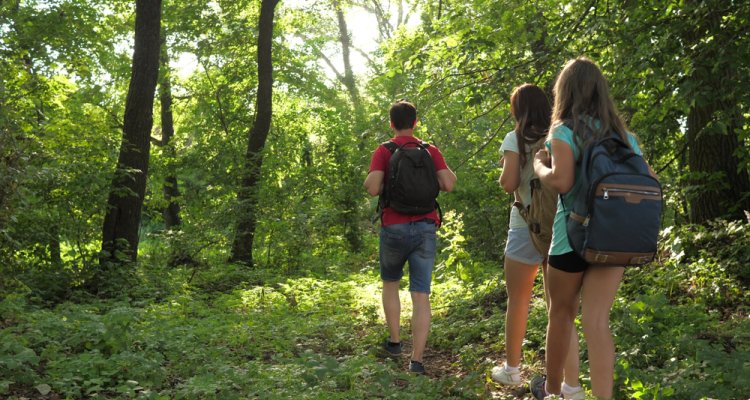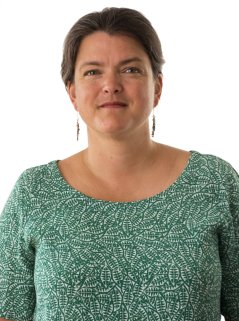
News
Maria Tengö appointed Special Professor in Human-Nature Relationships in the Anthropocene
The Executive Board of Wageningen University & Research has appointed Prof. Maria Tengö as Special Professor in Human-Nature Relationships in the Anthropocene. Prof. Tengö took up her new post on 1 January 2023. The chair is housed in the Forest & Nature Conservation Policy chair group and funded by NatuurCollege.
The Nature College Special Chair in Human-Nature Relationships in the Anthropocene was established to address the complex challenges of sustainability in the Anthropocene – a human-dominated world. Humans are altering the atmosphere, polluting the oceans, and turning natural ecosystems into farmland on a vast scale. Prof. Tengö argues that there is a need for transformative change in human values and behaviours and that research in collaboration with society can play an important role.
Maria Tengö, 49, is a principal researcher at the Stockholm Resilience Centre, Stockholm University, and a senior advisor at SwedBio. She has also worked in East Africa, South Africa, India and Brazil, together with local and international collaborators, exploring the practices, ethics, motivations, and worldviews related to sustainability. Her work has played a pivotal role in connecting the local and the global in science and policy for biodiversity conservation, including in the Intergovernmental Science-Policy Platform on Biodiversity and Ecosystem Services (IPBES) and the Convention on Biological Diversity (CBD).
Knowledge and governance systems
Prof. Tengö has researched and engaged with relationships between people and nature, especially how they relate to knowledge and governance systems – as well as their role in actions and movements towards sustainability.

Her research views humans and nature as fundamentally intertwined, which has enabled her to conduct research into and publish on Indigenous and local knowledge and governance systems, sense of place, and stewardship as inspiring entry points for the study, recognition and restoration of reciprocal relationships between people and nature in science, policy and practice. As part of generating knowledge and insights directed at transformative change, she has developed tools and approaches for dialogues and guidance for collaborations between researchers and societal actors, such as indigenous communities, conservation practitioners and policy makers, i.e. iterative processes to produce knowledge, action, and societal change in collaboration with societal actors. Creating conditions for dialogues across diverse knowledge systems, i.e. natural science, social science, as well as practice-oriented and local knowledge systems, and usefulness for all involved are guiding principles in her work.Her appointment as Special Professor in Human-Nature Relationships in the Anthropocene at Wageningen University is for five years. During this period, she will spend several weeks in Wageningen three to four times a year. Together with Rianne Kat, a PhD researcher, and other colleagues, she wants to find out more about:
- Practices, ethics, motivations, worldviews for moving towards diverse and just futures for all life on Earth
- How such values and behaviours can be revitalised and nurtured
The focus of the special chair will be on ecosystem restoration initiatives, and sets out to bridge transformative research practices at the scientific level with applied sciences and societal stakeholders, such as nature conservation agencies, farmers, and active citizens. She will convene interdisciplinary and transdisciplinary dialogues with researchers, practitioners and decision makers as part of the initiative.
Her vision is to develop theory and research practice to recognise, analyse and support reciprocal human-nature relationships in knowledge generation and action. In dialogues with practitioners and decision makers, and studying restoration initiatives in the form of ‘living labs’, she will carry out research to answer questions such as:
- How plural human-nature relationships interact in co-production processes to influence knowledge generation, enhanced care and connectedness, and agency for change?
- What implications such knowledge co-production processes have for transformative change towards sustainability?

Prof. Tengö will also contribute to the development of nature-based education in existing and new courses at Wageningen University & Research. These will take the form of targeted undergraduate courses in the Forest & Nature Conservation Policy chair group (FNP), and supervision of BSc and MSc thesis projects. The existing PhD course ‘Transformative research for global social-environmental challenges’ – already being carried out as a collaboration with the Stockholm Resilience Centre – will be given more impetus. In collaboration with colleagues at FNP, she will contribute to strengthening nature-based education at Wageningen University & Research.